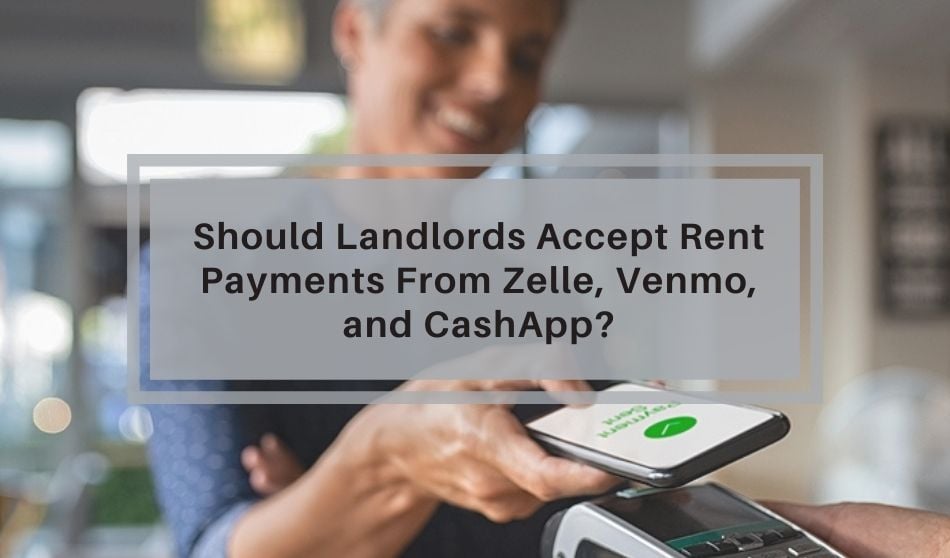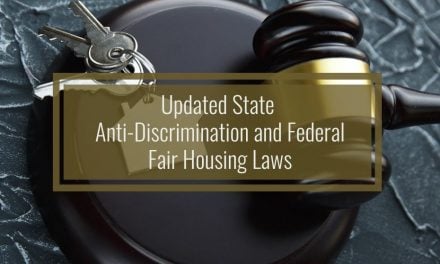
Zelle, Venmo, CashApp – the list of apps and services marketing themselves as the next best way to send and receive money is long. Every landlord wants to give tenants easy ways to pay rent. Tempting to offer these alternatives to accept rent payments from Zelle, Venmo, and CashApp but are these services the best way to collect rent electronically?
The short answer: No
But keep reading, and we will cut through the marketing hype and dig into the details of these and other services to help you decide which online rent payment options are best for you and your tenants.
Peer-to-Peer (P2P) services such as Venmo and CashApp and most gateway services like Zelle were designed to give end-users an easy way to exchange money between themselves. For example, you can send money electronically as a gift to a relative or a group of friends can split the bill at a restaurant and each pay their portion without the need for cash.
P2P has the funds sent and delivered from person to person through an app that acts like a digital wallet. A gateway service is different in that it is connected to a financial institution to allow that institution to send and receive those funds.
New Research: The data shows that applications for online rent payment services from landlords and property managers have increased by almost 20% in 2021 compared to pre-pandemic data. At its peak, this number spiked by as high as 40% in February 2021. Whitepaper and more information available here | Rentec Direct Releases New Data on Online Rent Payments in 2021, Makes Predictions for 2022
Reasons Not to Accept Rent Payments from Zelle, Venmo, and CashApp
Although tempting to allow tenants to pay with these convenient services because they were designed for other purposes, they lack some of the more important features a landlord relies on for receiving tenant rent payments electronically.
Legal and Compliance Concerns
If you have your properties structured in an LLC or other entity, this could be considered co-mingling funds and open you up personally to liability on your rentals.
Tax Reporting Complications
The income from these apps must report to the IRS that you personally received the funds rather than the funds going into your rental entity, which could complicate your tax reporting and increase your audit risk.
Tenant Chargebacks
Tenants can issue chargebacks to most of these services for up to 6 months, and there is no recourse for landlords when they are accepting personal payments via any of these platforms. Imagine losing 6 months of rent suddenly!
Slows Cash Flow | Transaction and Transfer Limits
P2P and gateway services like Zelle and Venmo have stricter (and arbitrary) limitations on the amount allowed to be sent as well as the amount allowed to be transferred.
For example: At the time of writing this article, if a landlord receives rent through Venmo, they can only transfer up to $19,999.99 in total a week, and each transfer can be no larger than $2999.99. Most rents are paid by the 1st of each month, but landlords may have to wait for week two or three (or more) to get those funds flowing to their bank account. This can spell very bad news for property management companies that need that cash flow to pay the owners their disbursement (also known as an owner draw or owner distributions).
For Zelle, the limits are specific to the financial institutions used. For example, according to mybanktracker.com a tenant using Citizens Bank can not send more than $1000 a day, which might mean that the tenant would need to make multiple rent payments before the due date if their rent and charges exceed $1000. Merchant services such as CSG Forte and the like also have limitations but because those services are designed for businesses, limits are not arbitrary because each application setup is unique to the business needs of the landlord or property management company.
Possibility for Errors
With services like Zelle, Venmo, and CashApp, if the tenant accidentally enters the details of the landlord incorrectly (such as the phone number), funds can be inadvertently sent to the wrong person.
That kind of mistake can be very complex and time-consuming for the tenant to resolve. There is not much protection for that tenant through those services, and there is no guarantee they will recover those funds. In the meantime, they may receive a late fee and late notes from you.
Bookkeeping Tasks Increase
These payment services do not interface with property management software which means manual data entry for you. Even if it is convenient for your tenants, you’ll spend valuable time typing those transactions into your property accounting system. Human errors are more likely when electronic payments are not automated.
And with the transaction limits mentioned above, tasks such as remembering to transfer funds from the app or service to your bank account and then recording those on your landlord software bank ledger is just one burden on your already full plate.
Lack of Automation
Bookkeeping automation aside, using Zelle, Venmo, or CashApp doesn’t allow a tenant to schedule payments online through their tenant portal. They will need to remember to manually send money each time. And if there is a delay in data-entry into the property management system, the tenant may receive unnecessary reminders and late fees.
Payments Can Not Be Refused | Eviction and Violation Concerns
Once you allow tenants to pay rent from a platform that is not integrated into your property management system, there is no way to stop or refuse payment. If you’ve started an eviction process for nonpayment or served a notice of nonpayment, any amount received (even one dollar) can void the process completely. These P2P and gateway services designed for end-users, in essence, create a legal loophole.
Just because the option to receive funds is available, doesn’t mean it’s the best option for a landlord or property manager.
What Online Payments Systems are Best for Landlords and Property Managers?
Unfortunately, allowing your tenants to send their rent directly to your bank account for processing or using your bank’s merchant services carry the same concerns of systems like Venmo and Zelle; namely controlling who is allowed to make a payment and automation. If someone is late in rent but the bank deposits payment received from them (any amount) it can cure a late payment notice and halt an eviction process.
The best online payment options are those designed for landlords and property managers that integrate with your property management software such as CSG Forte and a Cash Payment Network.
The benefits are worth the investment in time setting up your software and enrolling in those options. With property management software and integrated merchant services you can:
- Offer tenants the ability to schedule online payments through their tenant portal
- Offer tenants a Cash Payment Network option that allows them to find locations to pay electronically instead of by cash, check, or money order.
- Turn on/off those services on a per-tenant basis (especially useful in handling evictions)
- Pay owner disbursements
- Sit back and let the payments automatically populate your software ledgers and reports.
- Have peace of mind that those services will help with all the different compliance regulations regarding accepting rent payments.
Conclusion
Every landlord wants to receive rent in full and on time so It might be tempting to allow a tenant to send their rent from these P2P and gateway platforms and services like Venmo, Zelle, or CashApp. But, it’s clear that not every electronic payment option is in the best interest of the landlord and tenant. Although convenient for renters, these methods could be putting your business at risk.
A better solution is to make sure you are using a property management software, like Rentec Direct, that integrates with merchant services to keep your rental business running smoothly with optimal cash flow.






Processing fee’s are the culprit to accurate accounting, even it can be an expense, it gets costly, and even if the charges are passed to the tenant (convenience fee) some state laws refrain that. So a chrge system that charges the tenant/user-sender rather than the recipient would make acoounting proper.